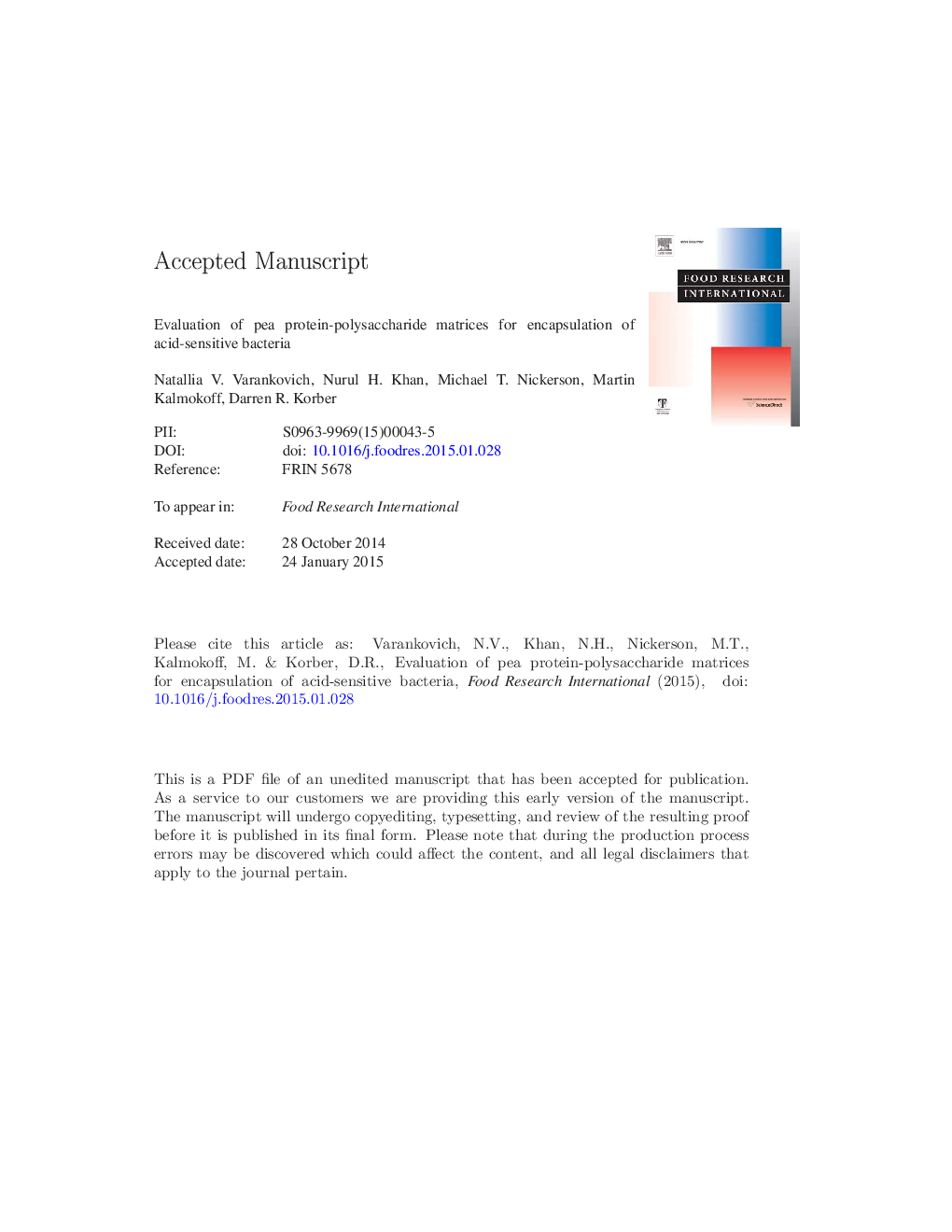| Article ID | Journal | Published Year | Pages | File Type |
|---|---|---|---|---|
| 6395510 | Food Research International | 2015 | 31 Pages |
Abstract
Protein-polysaccharide capsules containing Bifidobacterium adolescentis were produced and tested in a series of in vitro survival experiments to evaluate capsule protection of the bacterium to simulated stomach conditions, as well as their ability to release the encapsulated bacteria under conditions similar to those found in the lower gut. A protein fraction isolated from peas (pea protein isolate: PPI; 2.0%; w/v) was mixed with each of three different polysaccharides (0.5% (w/v) of either sodium alginate, iota-carrageenan and gellan gum) to produce capsules ranging in size from 2 to 3 mm diameter. All capsule formulations provided significant protection for cells exposed to synthetic stomach juice at 37 °C relative to non-encapsulated bacteria. In addition, PPI-alginate and PPI-iota-carrageenan capsules were found to dissolve in simulated intestinal fluid at 37 °C, releasing 70-79% of their bacteria “payload” within 3 h, with higher cell numbers being released from the freeze-dried capsules. PPI-gellan gum capsules did not dissolve to the same extent and the number of released cells was ~ 26-30% lower. Following a temporal rat feeding study with the test bacterium encapsulated in PPI-alginate, B. adolescentis-specific PCR and qPCR analyses confirmed the presence of DNA from this species in rat feces, but only during the period of capsule intake.
Related Topics
Life Sciences
Agricultural and Biological Sciences
Food Science
Authors
Natallia V. Varankovich, Nurul H. Khan, Michael T. Nickerson, Martin Kalmokoff, Darren R. Korber,
